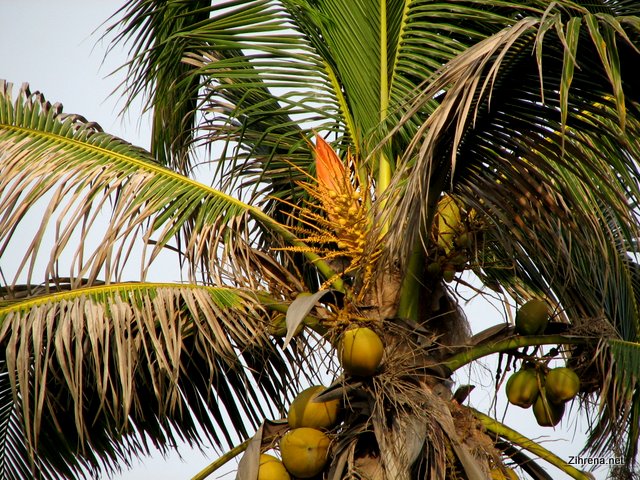Commercial, canned coconut milks can contain preservatives and flavor enhancers that many of us want to avoid. But making fresh coconut milk is easy, particularly for those of us living in Mexico or in tropical areas where the coconuts practically fall from the trees at our feet. How lucky can we be?
The only things you need to make coconut milk (besides the coconuts) are a cleaver to open the coconut, a tool or blunt knife to pry the meat from the shell, a blender to liquefy the meat, and muslin or a nut milk bag to strain the pulp from the milk.
Open one or two mature coconuts (the nuts will be brown, fibrous, lighter, and harder than the young nuts that render more water and little meat), drain the coconut water to drink separately, and separate the coconut meat from the shell (see the instructional video below for easy methods for opening both young and old coconuts).
The Coconut Tool Stainless Steel Coconut Meat Removal Knife
If the meat is firm and dry, cut it into small pieces that can be easily blended. Follow the grain of the coconut fiber for easy cutting. If the meat is tender, you can blend larger pieces without any problem. Place the meat in a blender and add an equal amount of filtered water. Blend until smooth and liquefied. Pour through clean muslin or a nut milk bag, squeezing out all the liquid possible. This will give you a concentrated, creamy coconut milk. Some people like to return the dry pulp to the blender, add additional water to the pulp, and run it through the blending and squeezing process again to get a second milk that is much lighter.
Coconut milk, once out of the nut, is highly perishable. Use it within a day of preparing it.
[contentblock id=2 img=adsense.png]
And don’t throw that pulp into the garbage! You can dehydrate it and use it in recipes as flour. Some people like to use the moist pulp as a exfoliating scrub, still rich in the remnants of natural coconut oil that will moisturize your skin. You can also use it in your garden, sprinkling it around the bases of your plants as mulch or working into the soil to enrich it. If nothing more, add it into your compost heap!

The Coconut Oil Miracle, 5th Edition
Nutiva Organic Extra Virgin Coconut Oil, 15-Ounce Tubs (Pack of 2)